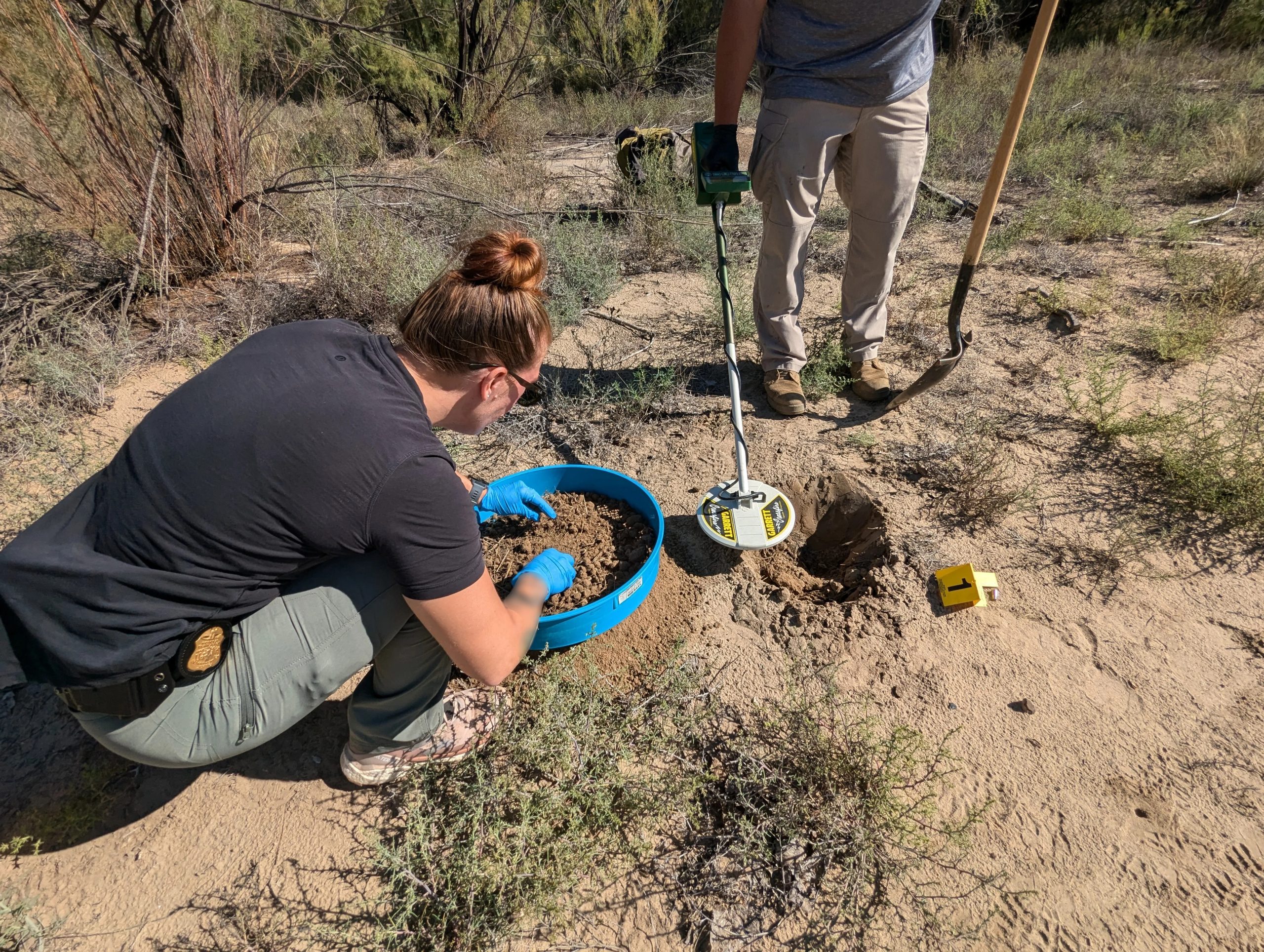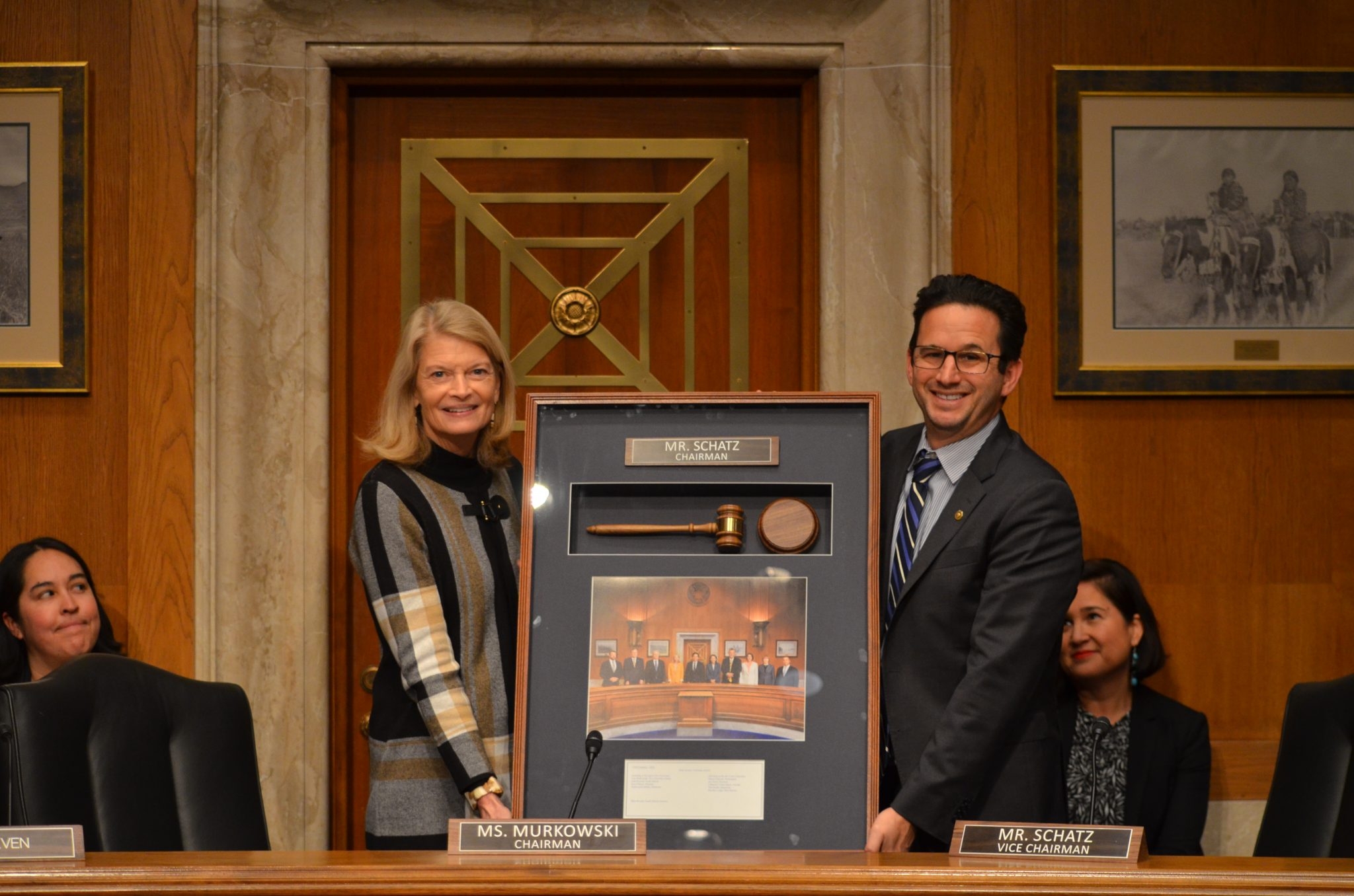Podcast: Play in new window | Download | Embed
Photo courtesy @BuuVanNygren / X
Navajo Nation President Buu Nygren is supporting President Donald Trump’s orders to boost the coal industry.
President Trump held a signing ceremony Tuesday in Washington, D.C., where President Nygren was in attendance.
In a statement, Nygren said he wants to “emphasize the importance of including tribal nations like the Navajo Nation in this national conversation.”
The orders are aim at reversing policies that have transitioned the country away from coal production.
STATEMENT FROM NAVAJO NATION PRESIDENT BUU NYGREN ON TRUMP’S EXECUTIVE ORDER SUPPORTING COAL DEVELOPMENT
WASHINGTON – Navajo Nation President Buu Nygren today issued this statement on President Trump’s Executive Order Supporting Coal Development across the U.S.:
“Today marks… pic.twitter.com/573zJePEzW
— Navajo Nation President Buu Nygren (@BuuVanNygren) April 8, 2025

Chairman Ernie Stevens with “Supporting Each Other” Women’s honorees Delores Pigsley, Chairwoman of the Confederated Tribes of Siletz Indians, and Tracy Stanhoff, former Chairman of the Prairie Band of Potawatomi National and Founder of Ad-Pro. (Courtesy Indian Gaming Association)
The Siletz News in Oregon reports that longtime tribal chair Delores Pigsley was recently honored by the Indian Gaming Association.
Brian Bull reports.
At the 29th annual National Indian Women’s “Supporting Each Other” luncheon in Washington D.C., Pigsley was recognized for her nearly four decades of serving as chairwoman for the Confederated Tribes of Siletz Indians.
In those years, Pigsley helped her tribe get federally reinstated. And more recently, she helped her people get their right to harvest, fish, and hunt on their traditional lands again after 45 years.
In a recent interview, Pigsley shared her happiness at negating the consent decree.
“It’s … a … probably one of the most – since I’ve been on the tribal council, after restoration, I was on when the tribe was restored in (19)77. And the next one was when we built our casino and got the land in trust in Lincoln City. And this one is right up there with those.”
The youngest of eight children, Pigsley credited her success with having strong mentors and friends, including others on the Siletz Tribal Council.

Middle school athletes stand on the podium at the annual Traditional Games in Juneau on Saturday, April 5, 2025. (Photo: Clarise Larson / KTOO)
The eighth annual Traditional Games was held in Juneau, Alaska, over the weekend.
More than 250 athletes from 30 teams from across the state, the Lower 48, and Canada competed in a dozen different events rooted in Alaska Native values.
KTOO’s Clarise Larson was there and has this report.
18-year-old Matthew Chagluak of Anchorage sits low on the gym floor at Juneau-Douglas High School: Yadaa.at Kalé Saturday morning.
His neck is craned upward and his eyes are laser-focused on a ball hanging on a piece of string above him.
Then, in one fluid motion, he kicks a leg up to touch the ball while balancing on one hand, successfully completing an Alaskan High Kick.
“By showing grace in your events, is showing respect for not only the event, but yourself too.”
Chagluak is Yup’ik, and he’s one of more than 250 athletes who came to Juneau to compete in the eighth annual Traditional Games.
Many of them are Indigenous, but the games are open to participants from any background.
The event opened with a cultural dance and songs.

Matthew Chagluak of Anchorage competes in the Alaskan High Kick at the annual Traditional Games in Juneau on Saturday, April 5, 2025. (Photo: Clarise Larson / KTOO)
Throughout the three-day event, the athletes from 30 different teams competed in a dozen different games. They’re all rooted in Indigenous hunting and survival skills.
“The history goes back hundreds maybe 1000s of years, so let’s see it continue hundreds or 1000s of more years.”
That’s Kyle Worl. He’s a coach and leads the program in Juneau.
“It’s a way to celebrate our culture and carry on these games and introduce them to youth throughout the Southeast region and beyond.”
Nathan Blake is a high school senior in Juneau.
Not only did he compete, but he was also in charge of getting the crowd of family, friends and spectators excited.
He says the inclusiveness of the games is one of the biggest reasons he’s drawn to them.
“This isn’t just a game for one culture and one only. This is a game for everyone to come together and just be one with one another, regardless of how you look or what you do.”
This year, athletes broke 12 records in different categories and age groups.
Get National Native News delivered to your inbox daily. Sign up for our daily newsletter today.




 A former tribal assistant chief is sharing his Native culture, and food through his business.
A former tribal assistant chief is sharing his Native culture, and food through his business.

 U.S. Sens. Lisa Murkowski (R-AK), chair of the Senate Committee on Indian Affairs, and Brian Schatz (D-HI), committee vice chair, are leading a hearing Wednesday on Indian education.
U.S. Sens. Lisa Murkowski (R-AK), chair of the Senate Committee on Indian Affairs, and Brian Schatz (D-HI), committee vice chair, are leading a hearing Wednesday on Indian education.


 In Oregon, the search for a missing Grande Ronde tribal elder continued over the weekend.
In Oregon, the search for a missing Grande Ronde tribal elder continued over the weekend.


 In a rare move, six tribal nations in Michigan have withdrawn from discussions on a federal permit for the Line 5 tunnel, which the Canadian company Enbridge wants to build under the Straits of Mackinac.
In a rare move, six tribal nations in Michigan have withdrawn from discussions on a federal permit for the Line 5 tunnel, which the Canadian company Enbridge wants to build under the Straits of Mackinac.